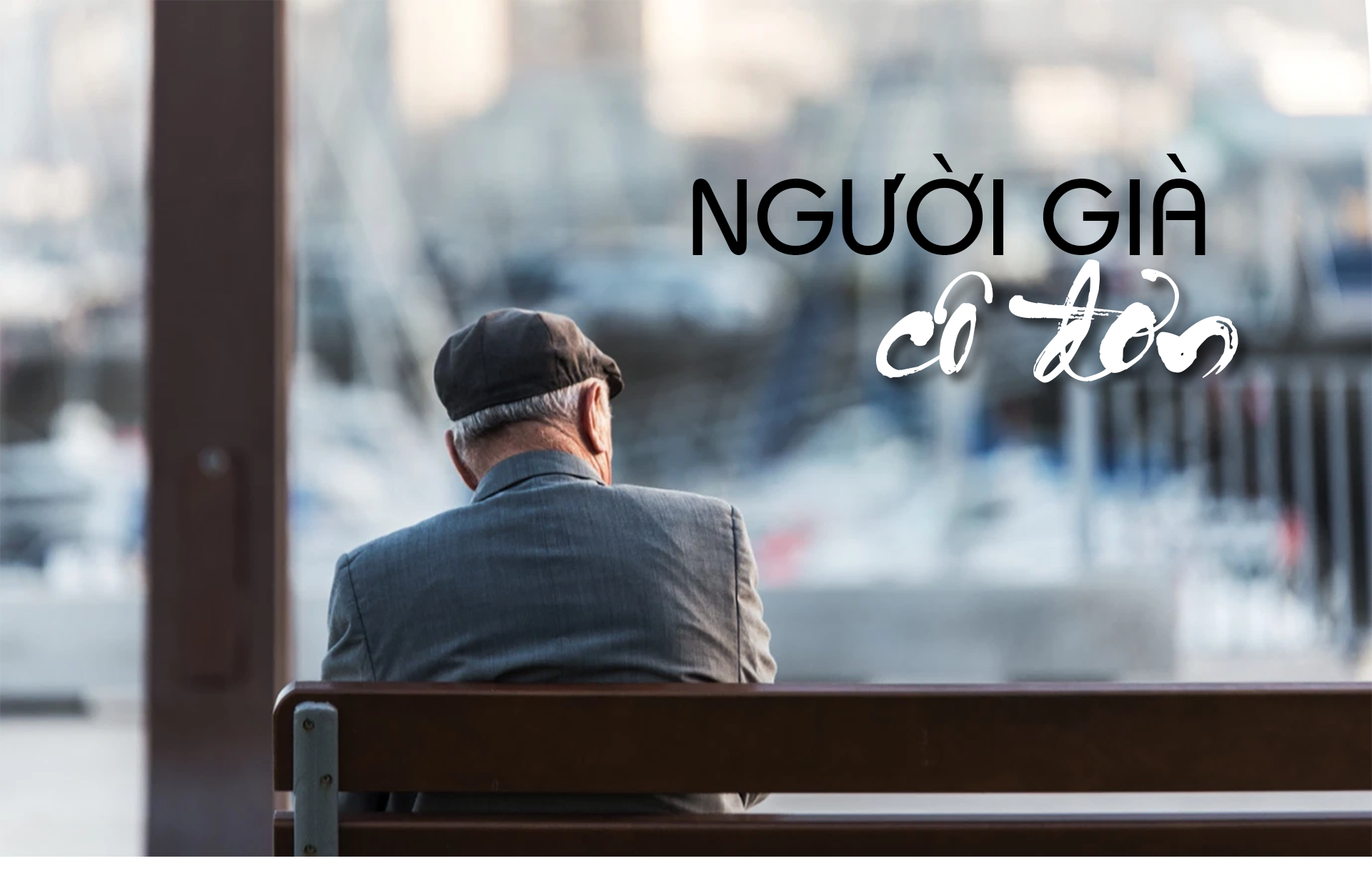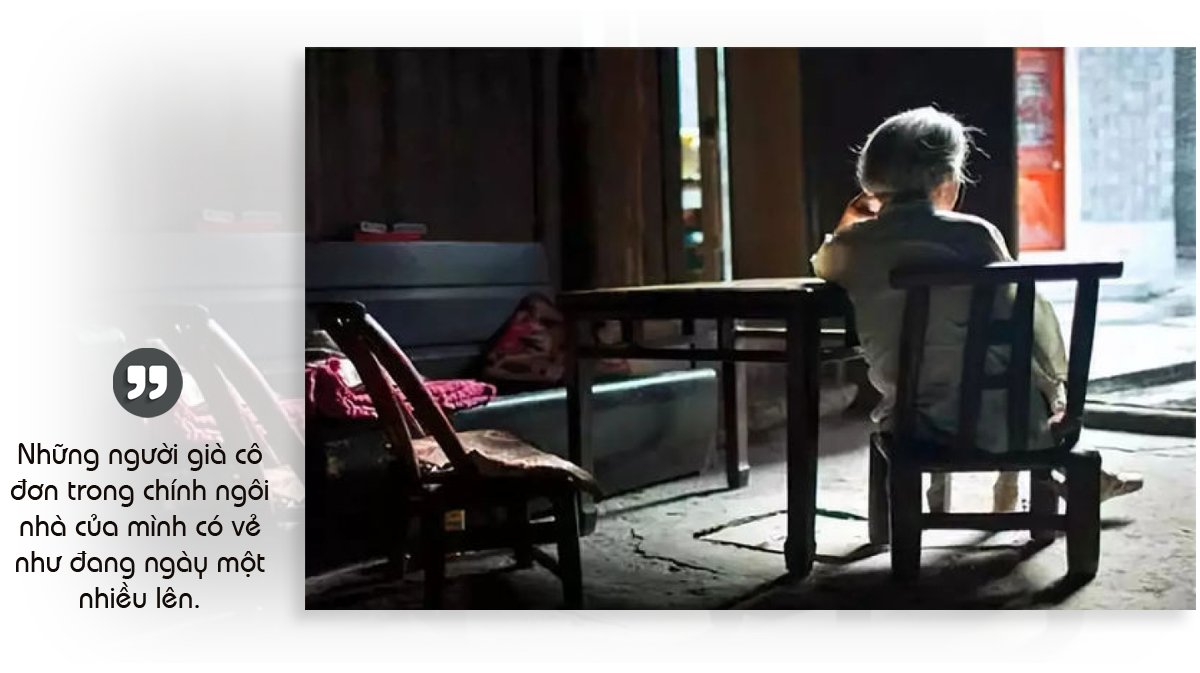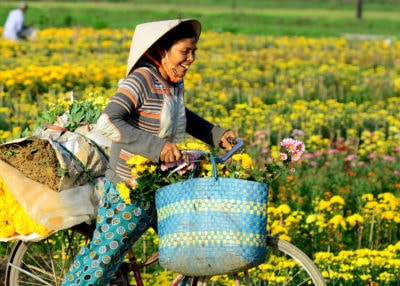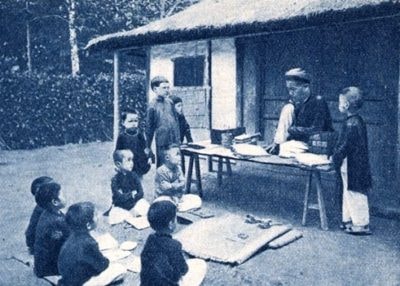
If you enter any village space in our country, it is easy to see houses with only the elderly and children, most of the people of working age go to work far away. Life is like a carrying pole without someone in the middle to carry it, with only two points at the beginning and end, old and young, living quite hard - although the hard work may not be related to money - with roles that are too much: grandparents in their 70s and 80s "play the role" of parents to teach, advise, and guide; grandchildren just 8 and 10 years old "play the role" of children to care for, support, and support.
In Nghe An, there are many villages like that, houses like that. When asked, the elderly said that they have many worries. For poor households, where children work far away and leave their grandchildren in the countryside with their grandparents, the first worry is poverty. Raising a child (a few) these days is not easy, the cost of education is countless. The common worry is that grandparents are struggling to know how to properly raise their grandchildren, when the old educational views are now outdated. But the bigger worry is that many elderly people are gradually facing the reality of a lonely life, when even their grandchildren grow up, and as a matter of course, they choose to live away from home.

The number of elderly people living alone in their own homes seems to be increasing. According to the United Nations Population Fund, Vietnam is one of the countries with the fastest aging population in the world. People aged 60 and over accounted for 11.9% of the total population in 2019 and it is forecasted that by 2050, this number will increase to more than 25%. By 2036, Vietnam will enter the aging population period, moving from an "aging" society to an "aged" society. In addition, the family structure of Vietnam is changing significantly. If in 1993, up to 80% of the elderly lived with their children, in 2010, this rate was only 69.5% and this rate is decreasing day by day. Although it is a country that promotes family traditions, especially the multi-generational family model with a philosophy of love, respect, and reliance; However, more and more young Vietnamese people consider it normal to separate from their parents and live on their own after marriage, or even earlier – after the age of 18. The development of society also promotes a change in the concept of “living in a mill”, and the trend of establishing oneself and making a career in big cities is increasingly chosen by many people.
Children and grandchildren all have their own lives, and the lonely elderly seem to have become an inevitable thing. For them, day by day there is probably no difference, if anything, it is waiting for the few days of Tet, when their children and grandchildren call to inform them that they will arrange to return to their hometown. On normal days, if they still have a small garden in their hometown, the elderly can still work on it to relieve boredom; but if the village has also been "urbanized", then the only activity of the day is sitting on the porch looking out the gate, or looking up at the cameras installed by their children and grandchildren all over the room and yard to "monitor" the situation!

Old age brings many diseases, but perhaps loneliness is one of the most frightening diseases that the elderly face around the world. Recently, the press reported that elderly people in Japan deliberately… stole to get into prison to live to relieve their boredom. In the UK, in 2018, they even appointed a Minister of Loneliness – in charge of solving problems related to the lonely living situation of more than 1/10 of the country's residents. Some developed countries maintain hotlines for the elderly to call and confide in, because there are people who have not had the opportunity to talk to anyone for 1-2 months.
July 11 is World Population Day. On this day, the United Nations predicts that the world population is expected to reach 8 billion people on November 15. Amidst the joy of welcoming new lives, let us pause for a moment to think about the elderly - because after all, old age does not spare anyone. Thinking about the elderly is thinking about your grandparents, parents; thinking about yourself, in a scenario that would be even lonelier than the present, if there are no responsible and emotional solutions at both the macro and micro levels.
Article: Phuoc Anh
Illustration: Document









